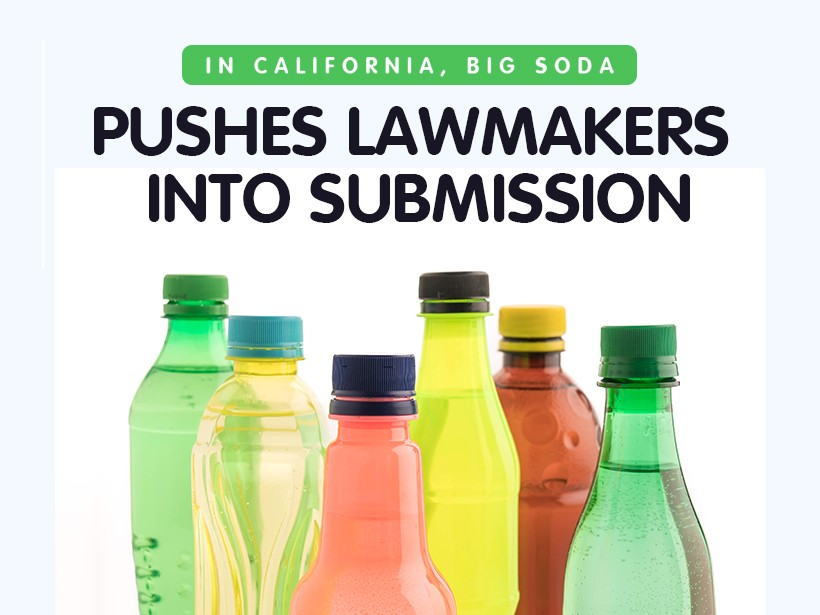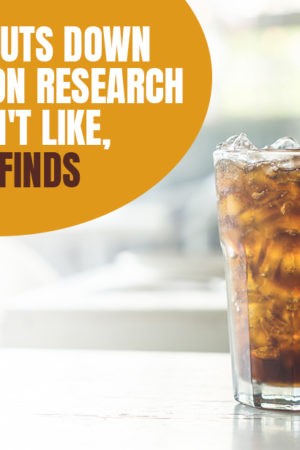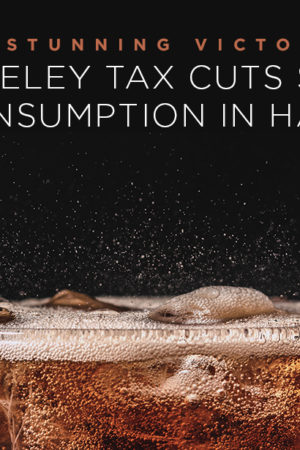The fight against big soda is slowly but surely making its way from U.S. cities to the states themselves. In Connecticut, the governor’s office is pushing to enact the first state-wide soda tax in the face of massive industry opposition and well-funded campaigns against them. Despite these promising signs for advocates of the tax, it’s going to be an uphill climb against the power of the beverage industry. Big corporations spend millions stifling good faith efforts to spread awareness on the dangers of too much sugar and limit the amount we consume.
Nowhere in the country is the fight more pronounced than in California. In the past two years alone, the beverage industry has spent 11.8 million dollars combatting the efforts to tax, limit, and properly label sugary drinks.1 The thing is, they’ve had a lot of success: last year, the state legislature passed a bill banning local sugar taxes until the year 2031. That kind of preventative legislation is a dream come true for the lobby, as each year more and more cities crack down on widespread obesity with their own sugar taxes.2
California legislature bows to beverage lobby interests
A year later, and the sugar lobby still has California state legislators in its grip. In early April, Assemblyman David Chiu pulled his legislation to ban oversized fountain sodas from being sold in restaurants and grocery stores. “Make no mistake,” said Chiu, “the disease and suffering created by sugar-sweetened beverages is one of the most pressing public health issues of our time and must be addressed.” Nonetheless, Chiu and other lawmakers backed down in the face of industry pressure, and threw out the bill in the Assembly Health Committee, before it could be brought to a vote in the larger body.
“Bold bills taking on big soda are never easy wins,” said Assemblywoman Buffy Wicks, in response to the decision.
Public health versus a powerful industry
The tentative good news is that a statewide sugar tax, one that would fly in the face of last year’s preventative legislation, did make it past the health committee to be voted on. That was a narrow victory, however, and the likelihood of its being passed is relatively low. Representatives of industry groups like the American Beverage Association lashed out at the tax for targeting the wrong industry, arguing without evidence that “more starch and fat in the American diet” are the root cause of obesity.3
More importantly, however, members of the state legislature on both sides of the aisle have been towing the industry line. “You can’t just tax everything,” said Assemblyman Heath Flora, who argued that lack of exercise could also be the problem. In all of this, it seems that the lobby has gone a long way in deflecting blame from the industry and preserving sugar’s place at the top of the American food pyramid. One can only hope that, as the national obesity crisis becomes more severe, our representatives at both the state and federal level will begin taking action to address the dangers of sugar.
NUTRITIONAL DISCLAIMER
The content on this website should not be taken as medical advice and you should ALWAYS consult with your doctor before starting any diet or exercise program. We provide nutritional data for our recipes as a courtesy to our readers. We use Total Keto Diet app software to calculate the nutrition and we remove fiber and sugar alcohols, like erythritol, from the total carbohydrate count to get to the net carb count, as they do not affect your blood glucose levels. You should independently calculate nutritional information on your own and not rely on our data. The website or content herein is not intended to cure, prevent, diagnose or treat any disease. This website shall not be liable for adverse reactions or any other outcome resulting from the use of recipes or recommendations on the Website or actions you take as a result. Any action you take is strictly at your own risk.
- California Pushes for Cigarette-Like Warning Labels on Soda - July 1, 2019
- Is a Slowdown in Australia's Sugar Consumption a Sign of More to Come? - June 24, 2019
- Groundbreaking Study Says the Sugar Rush Doesn't Exist - June 12, 2019































